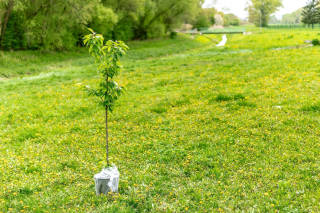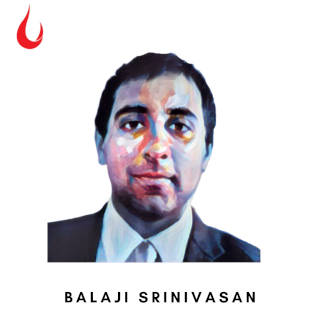[Photo by Cat Han on Unsplash]
Good morning,
Christian tradition has it that Jesus Christ had his last supper with disciples on a Thursday evening before his crucifixion on a Friday that Christians world over now call Good Friday. What may have gone through Christ’s mind that evening? It is something Leondardo da Vinci thought much about as he worked to create the iconic painting, The Last Supper. Walter Isaacson documented how da Vinci thought it through in his biography Leonardo Da Vinci. Some snippets from Isaacson’s book resonated deeply with us.
“Leonardo’s studies of water movements also led him to understand the concept of waves. He realized that waves do not actually involve water moving forward. Waves in the sea and ripples emanating from a pebble falling into a pond progress in a certain direction, but these ‘tremors,’ as he called them, merely cause the water to move up for a moment before returning to where it had been. He compared them to waves caused by a breeze in a field of grain. By the time he wrote the Codex Leicester and other, concurrent notebook pages on the movement of water, Leonardo had a deep feel for how waves propagate in a medium, and he correctly assumed that sound and light travel in waves. With his gift for analogy and ability to notice movement, he even viewed emotions as traveling in waves. At the core of the narrative in The Last Supper are the waves of emotion that emanate from the disturbance caused by the utterance of Jesus.”
Isaacson has it that the artist would procrastinate at times. “While painting The Last Supper, Leonardo would sometimes stare at the work for an hour, finally make one small stroke, and then leave. He told Duke Ludovico that creativity requires time for ideas to marinate and intuitions to gel. ‘Men of lofty genius sometimes accomplish the most when they work least,’ he explained, ‘for their minds are occupied with their ideas and the perfection of their conceptions, to which they afterwards give form.’ Most of us don’t need advice to procrastinate; we do it naturally. But procrastinating like Leonardo requires work: it involves gathering all the possible facts and ideas, and only after that allowing the collection to simmer.”
Have a good day!
In this issue
- Unintended consequences of tree planting
- What is the purpose of technology?
- Avoid men, follow women
Unintended consequences of tree planting
Last week, when the world observed International Day of Forests many jumped into action to plant trees. For many, interest in environmentalism grows with such activities. They tend to meet like minded people during such campaigns, and the understanding of environmental protection grows. One of the essential learnings is around the risks of thoughtless activities, without taking into account the local knowledge and the bigger picture.

[Photo by George Bakos on Unsplash]
In a recent essay, DW shares an important story from Kenya. The author Kira Walker writes, “When Prosopis juliflora was introduced to Kenya's Baringo County in the 1980s it was heralded for the benefits it would bring to the area’s pastoral communities.
“A native of arid lands in Central and South America, the woody shrub, known locally as mathenge, was promoted by the Kenyan government and the UN Food and Agriculture Organization to help restore degraded drylands.
“At first, mathenge helped prevent dust storms, supplied ample wood for cooking and construction and provided fodder for animals, said Simon Choge, a researcher with the Kenya Forestry Research Institute in Baringo County.
“But after the El Nino rains of 1997, things changed.
“Mathenge seeds dispersed widely, and without any local fauna adapted to eat the foreign tree it spread aggressively.
“Impenetrable thickets overran grazing pastures, displaced indigenous biodiversity and depleted water sources. The trees’ thorns pierced the hooves of livestock, while its sugary pods caused tooth decay and loss, sometimes leading to starvation among the animals it was meant to nourish.
“‘Now, people have no livelihoods,’ Choge said.
“Large-scale tree planting programmes have been heralded as an effective way of drawing CO2 from the atmosphere. Yet in the verdant vegetation that has transformed Baringo's grasslands lies a stark warning: Sometimes, planting trees can do more harm than good.”
The lesson is simple. Forest conservation and tree planting should not be a once-in-a-year activity, but demands deep engagement throughout the year.
Dig deeper
What is the purpose of technology?
The answer to that question sounds straightforward. To improve the quality of life. But we came across an essay by Balaji Srinivasn that makes a rather audacious argument—to eliminate mortality, he argues.

“Money can't yet buy you a trip to Mars. Or a neural implant. Or a medical tricorder. And at one point in the not-too-distant past it could not buy you a web browser, a search engine, or a smartphone.”
“At first that sounds crazy. But let's start with the premise: is the proximate purpose of technology to reduce scarcity? Think about how a breakthrough is described: faster, smaller, cheaper, better. All of these words mean that with this new technology, one can do more with less. In the digital world, Google made information on any topic free to anyone with an internet connection, and WhatsApp made it free to communicate with anyone. In the physical world, innovations like the Haber Process or the Green Revolution allowed us to produce more with less. In a real sense, these technologies reduced scarcity.
“Now for the second half of the sentence, the logical implication. Is the ultimate purpose of technology to eliminate mortality? Well, mortality is the main source of scarcity. If we had infinite time, we would be less concerned with whether something was faster. The reason speed has value is because time has value; the reason time has value is because human life has value, and lifespans are finite. If you made lifespans much longer, you'd reduce the effective cost of everything. Thus insofar as reducing scarcity is acknowledged to be the proximate purpose of technology, eliminating the main source of scarcity—namely mortality—is the ultimate purpose of technology. Life extension is the most important thing we can invent.”
While the argument sounds clear-headed, we’re wrapping our heads around what may the second-order outcomes be if human immortality becomes a reality? For instance, will people desire progeny to keep their lineage going? Any thoughts that occur to you? We’d love to hear what you think.
Dig deeper
Avoid men, follow women

(Via WhatsApp)
Still curious?
In this podcast with Charles Assisi, Scott Hartley, bestselling author of ‘The Fuzzy and the Techie’, talks about why tech knowledge is necessary, but not sufficient for entrepreneurs. They also need a broader curiosity about the world around them. Listen: ‘The value of technology is in solving meaningful human problems’
Monitoring performance and impact is key to the success of the Swachh Bharat Mission. And that’s where technology can make a big difference, writes Amrita Chowdhury Read: A civic tech approach to Swachh Bharat
ICYMI: Our most recent FF Recommends. Read: The best stories of the first quarter of 2021. (We are working on the next edition of FF Recommends now, and it will hit your inbox on Saturday. If you would like us to look at a specific product, service or experience in the forthcoming editions, please let us know by hitting the reply button.)
Tell us what you think and find noteworthy.
And if you missed previous editions of this newsletter, they’re all archived here.
Bookmark Founding Fuel’s special section on Thriving in Volatile Times. All our stories on how individuals and businesses are responding to the pandemic until now are posted there.
Warm regards,
Team Founding Fuel
(Note: Founding Fuel may earn commissions for purchases made through the Amazon affiliate links in this article.)

